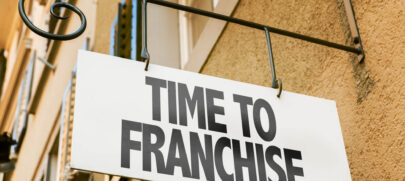Franchisees in Seattle have been arguing that they’ll be at a serious disadvantage compared with independent businesses if Seattle’s new minimum wage law goes into effect as it’s written. The law requires all businesses to move toward a minimum wage of $15 an hour, but small businesses get seven years to reach that point, while large businesses get just three years.
The point that affects franchisees is that franchises have been included in the “large businesses” category, even if they’re independently owned and operated, and have small numbers of employees.On April 1st, franchisees must pay their workers at least $11.00 an hour, while mom and pop companies can pay theirs $10.00. Until April 1, the minimum wage for Seattle and the rest of Washington state is set at $9.47 an hour, so small businesses will have to pony up less than a dollar per hour for each worker, and large businesses will have an increase of almost triple that amount.
The difference in outlay could be in the thousands of dollars over the years, and a number of franchisees went to court to argue that the difference would put them at a serious competitive disadvantage. The franchisees claimed that they would have no choice but to raise prices, allowing the mom and pop businesses to undercut them on price and endangering their businesses.
The judge disagreed. First, he felt that the franchisees had no evidence that the problems they feared would really occurred. He called concerns about having to raise prices “speculation” and questioned whether there would really be difficulties in coming up with higher wages for workers.
The judge also felt that franchisees have such a lot of advantages over independent businesses that a difference in costs wouldn’t necessarily put them at a disadvantage.
That seems like a very strong testimony for franchises.
It is certainly true that franchisees have advantages:
- Immediate name recognition provides a ready-made customer base as soon as a franchise opens, where independent businesses have to build up a base from scratch. Consumers are mor likely to think, “Oh, great, we have a Little Caesar’s now!” or even, “I didn’t know we had a Little Caesar’s in town!” rather than, “Hey, a new pizza place. Wonder if it’s any good.”
- Name recognition also increases the likelihood that travelers through the town will stop in.
- A proven system lets franchisees start off on the right foot, without having the trial and error of a typical independent start-up. It can take years to develop a workable, scalable system, and a mom and pop business might never do so.
- Membership in the franchise network means franchisees usually have lower costs for supplies, access to proprietary software typically at no extra charge, and experienced help with negotiating leases.
- Franchisees benefit from national or regional marketing, including things like celebrity spokespeople, professionally made TV commercials, and other assets unavailable to independent start-ups.
- Franchisors provide training, support, and mentorship which is not available to independent entrepreneurs.
Are these advantages so significant that they make up for the differences in wage requirements Seattle’s franchisees are facing? A federal judge says they are.



